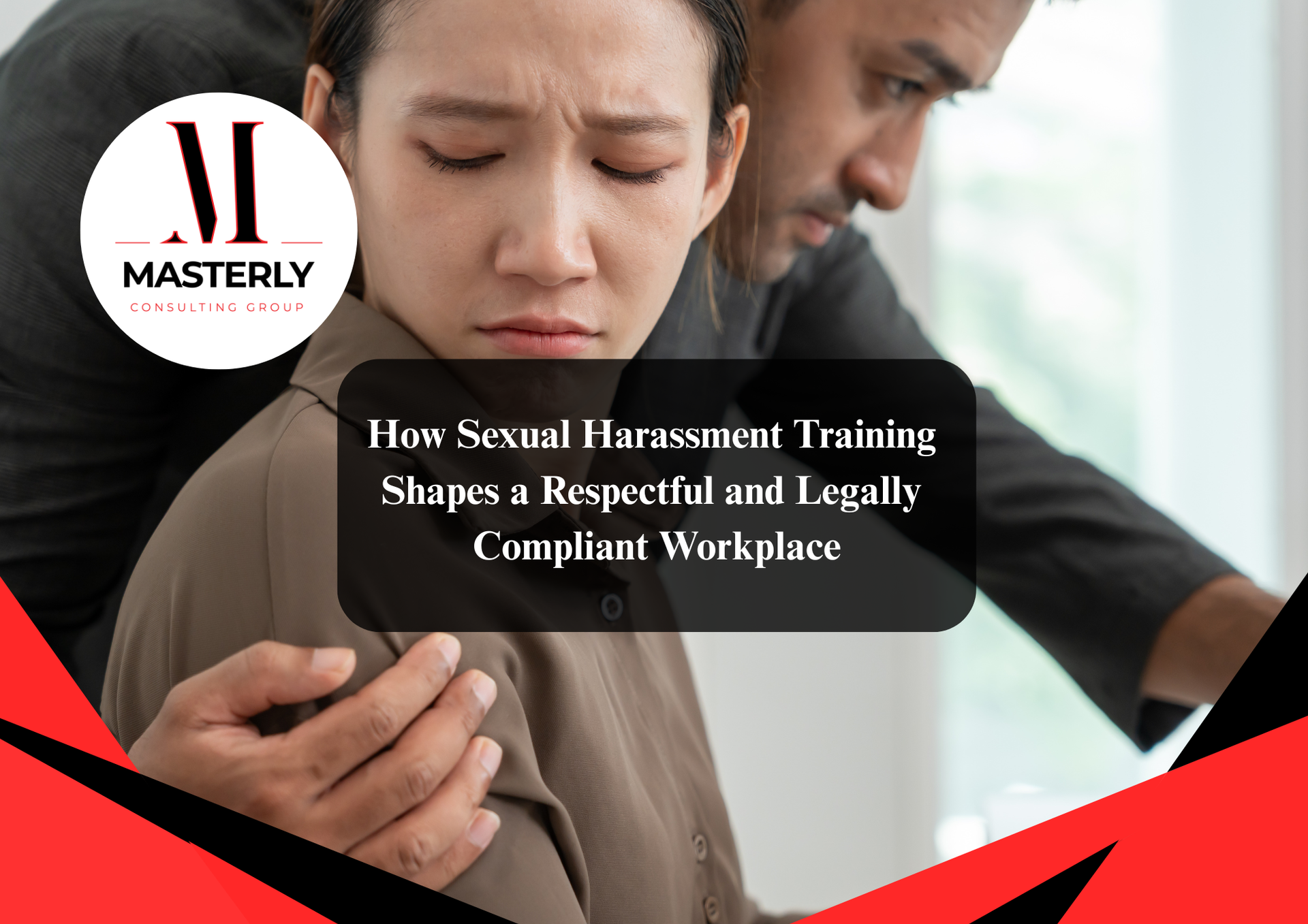Best Practices for Addressing Sexual Harassment in the Workplace Through Employee Training
Creating a safe, inclusive, and respectful work environment starts with effective sexual harassment training for employees. Employers must implement actionable strategies to identify, report, and resolve workplace harassment while adhering to legal requirements. By adopting best practices, businesses can reduce risks, build trust, and foster a culture of respectful work environments.
Understanding What Constitutes Sexual Harassment
To effectively address workplace issues, employees and supervisors must understand what constitutes sexual harassment. This includes unwanted verbal, physical, or visual conduct of a sexual nature that interferes with an individual’s work or creates an intimidating environment. Under Title VII, such behavior is classified as unlawful harassment and is prohibited in all workplaces with three or more employees.
Key Concepts to Include in Sexual Harassment Training
Effective harassment training should outline clear definitions and examples of inappropriate behavior. Key concepts to address include:
- Quid Pro Quo Harassment: When employment decisions depend on accepting or rejecting unwelcome advances.
- Hostile Work Environment: Repeated behaviors that create a toxic or intimidating atmosphere.
- Protected Characteristics: Including race, gender, national origin, age, and genetic information, as specified under discrimination laws.
This foundational knowledge ensures that employees and supervisors can recognize misconduct and take appropriate action.
Implementing Workplace Harassment Prevention Training
Training Requirements for Employers
Most employers are legally obligated to provide training that meets state and federal regulations. For instance, California requires two hours of sexual harassment prevention training for all supervisors and annual training for employees. Other states have similar mandates, emphasizing the importance of tailoring training requirements to specific jurisdictions.
Making Training Accessible
To maximize impact, harassment prevention training should be accessible and inclusive. Offering online training allows employees to complete courses at their own pace, even on a mobile device. This flexibility ensures that both new employees and long-standing team members can participate effectively.
Incorporating Inclusion Training
In addition to focusing on sexual harassment, incorporating inclusion training into the program fosters a culture of mutual respect. When employees understand the value of diversity and inclusion, they are better equipped to identify and address inappropriate behavior.

Reporting and Resolving Workplace Harassment
Creating a Sexual Harassment Prevention Policy
An effective sexual harassment prevention policy is essential for addressing misconduct. This policy should outline:
- Clear reporting procedures for employees and supervisors.
- Steps for investigating complaints thoroughly and sensitively.
- Measures to protect complainants from retaliation.
Conflict Resolution and Affirmative Defense
Training should emphasize conflict resolution strategies to handle disputes internally before escalating them. Additionally, employers should understand how implementing harassment training can serve as an affirmative defense in the event of legal claims, demonstrating a proactive approach to compliance.
Enhancing Training Programs for Long-Term Impact
Best Practices for Course Development
To ensure effectiveness, courses on workplace harassment should:
- Be interactive, engaging, and scenario-based.
- Include up-to-date content aligned with current laws like Title VII and state-specific regulations.
- Offer technical support for online training platforms.
Measuring Success and Making Improvements
Evaluate the success of harassment training programs by collecting feedback from employees and tracking incident reports. Use this data to refine content and address gaps, ensuring ongoing compliance and effectiveness.
The Role of Workplace Harassment Training in Promoting Human Rights and Preventing Discrimination
Workplace harassment training is a critical tool for promoting human rights and fostering a respectful workplace environment. Such training equips supervisors and employees with the knowledge needed to identify and address discrimination based on race, gender, or other protected characteristics effectively.
For managers, harassment training provides practical strategies for responding to complaints and fostering a culture of inclusivity. Employees learn how to recognize inappropriate behavior and feel empowered to report incidents without fear of retaliation. This dual focus on prevention and accountability ensures businesses comply with legal obligations while maintaining a safe and supportive work environment.
By prioritizing workplace harassment training, organizations can demonstrate their commitment to protecting the rights of all employees and building a workplace where respect and dignity are paramount.
How Sexual Harassment Prevention Training Protects Your Business and Employees
Implementing sexual harassment prevention training is essential for creating a safe and respectful workplace while reducing legal risks. This training helps employees and supervisors understand what behaviors constitute harassment, how to report incidents, and the steps the organization will take to address complaints.
Effective sexual harassment prevention training includes practical scenarios, clear guidelines on company policies, and education on the consequences of non-compliance. It fosters a culture of accountability by empowering employees to recognize and challenge inappropriate behavior. For employers, it serves as both a protective measure and a demonstration of their commitment to maintaining a professional work environment.
By prioritizing sexual harassment prevention training, businesses can build trust, improve employee morale, and ensure compliance with state and federal regulations.
Contact Us for Professional Guidance and Training
Preventing workplace harassment requires more than just compliance—it demands a commitment to fostering a safe and productive environment. At Mastely Consulting Group, we specialize in sexual harassment training for employees, tailored to meet your organization’s needs.
Let us help you build a robust harassment prevention program that empowers your team and protects your business.
Contact us at (888) 209-4055 to schedule a free consultation and ensure your workplace is prepared to handle any challenges.








